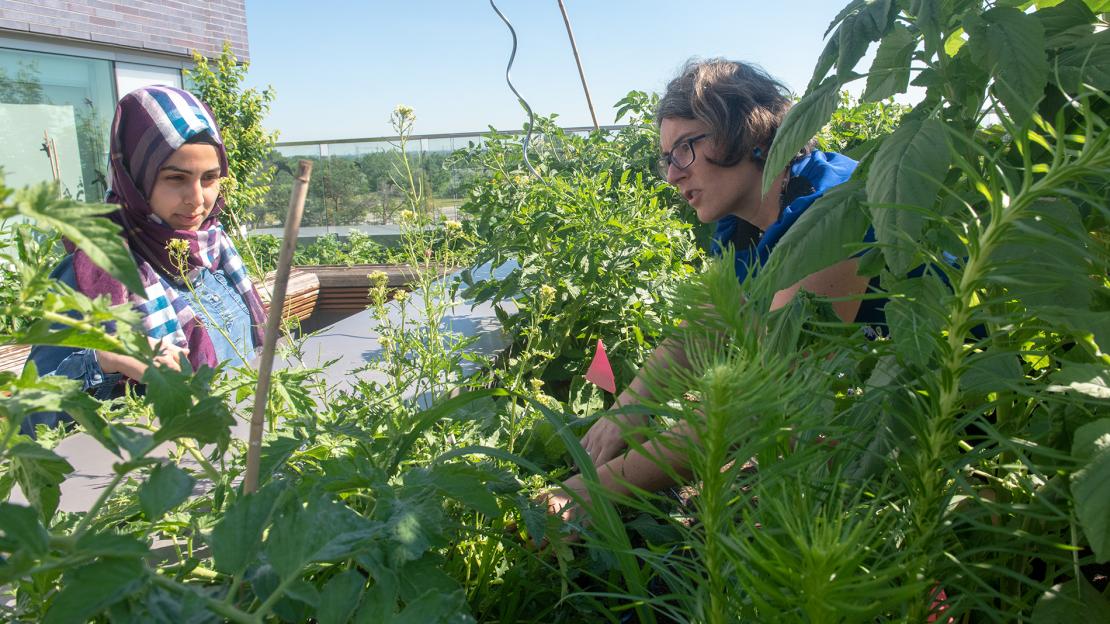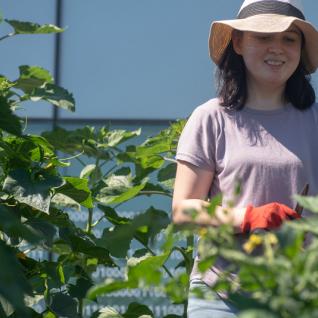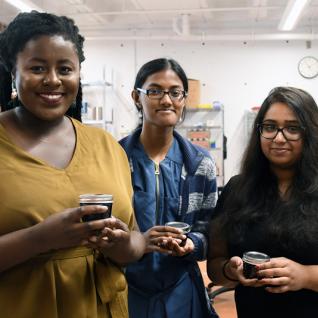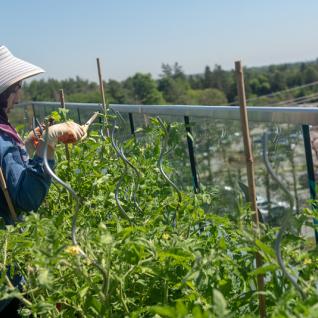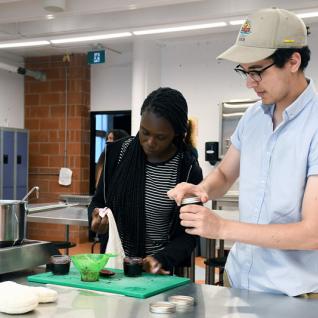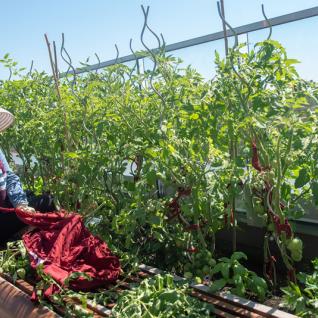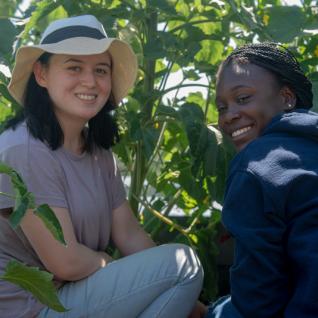Jeda McCall had never tried gardening before taking Gender in the Kitchen. Now she doesn’t hesitate to hop into a garden bed and crouch in the dirt, searching for weeds.
“Everyone learns differently,” says McCall, a third-year student in the journalism program. “For me, I can’t sit down and read a book. I think learning with visuals and actually having to experience what it’s like is really good.”
It’s the second year that the Women’s and Gender Studies course has been taught at U of T Scarborough, but the first year it has incorporated kitchen tutorials and the IC Rooftop Garden.
History Professor Donna Gabaccia created and instructs Gender in the Kitchen, which explores food-related topics through the lens of gender. From production to consumption, the course examines the ways gender roles and expectations impact industrial and other food systems through topics like slavery, roles in the home, dieting and notions of health, all the way to foodies and hipsters.
“I was looking for a way to guarantee that issues of gender were included in the food studies program,” Gabaccia says. “Women’s studies and food studies share a really important quality, we emphasize experiential learning.”
Almost 20 per cent of students’ grades come from “learning-by-doing” activities. Students complete four tutorials in the Culinaria Research Centre’s kitchen laboratory. In one tutorial, students learn to pickle using Wisconsin cucumbers they tended to in the garden. In another, students pick serviceberries from trees and bushes around campus, then learned how to preserve them.
“Their assignments encourage them to think about how the gender of foods, food production and food consumption links the academic materials to the life that they live,” Gabaccia says. “I want them to see that there’s a connection between their own life and what they study.”
Students must work for at least two hours in the garden, but they can volunteer additional time for extra credit. For the rest of the semester, students will add mulch to the garden, water plants, remove weeds, care for strawberries and tomatoes and plant various seeds, including baby spinach and radishes.
Carly Sahagian, who is going into her fourth year in the life sciences program, had also never tried gardening before taking the course. She has now spent five hours in the Rooftop Garden this semester and says it is the best part of the course.
“It allows students to reconnect with the earth and raise awareness on healthy eating,” says Sahagian, who moved to Canada from Syria two-and-a-half years ago. “It makes you connect more to the Canadian soil and be an active citizen," she adds.
Beatrice Lego, co-ordinator of the IC Rooftop Garden and the Teaching Farm Initiative, says some of the most important things students learn while working in the garden are experiences with teamwork, nurturing, planning and relaxation.
“There’s this aspect of being disconnected with your routine and caring for a plant that’s unique,” she says.
Lego hopes the experience will encourage students to think about where their food comes from. She says a particularly powerful moment for many students was tasting strawberries they grew and noticing how the taste differed from the ones found in grocery stores.
“They can feel the sun and the sugar in it,” she says. “They understand that you need to spend time if you want to shape something.”
The garden sessions are run by two students in the Master of Environmental Science program, Pinar Reza and Shakhnoza Vafaeva. Reza and Vafaeva are completing a summer internship with the Teaching Farm Initiative.
Vafaeeva says seeing the strawberries she cared for grow, then eating them, is an experience “that will stay with me for a long time.” She wants students to have a similar reaction.
“I really hope they form an appreciation for growing food,” she says. “I hope that they become more aware of the process of cultivating things and then harvesting them.”
Reza says the unique opportunity to give students hands-on learning is what attracted her to the internship.
“I did a course on plant biology, but all of that stuff I learned about plant growth and genetics doesn’t compare to this, when you actually see it and feel it and touch it,” she says.
“Somehow, every single time I enter the garden, it still amazes me.”
